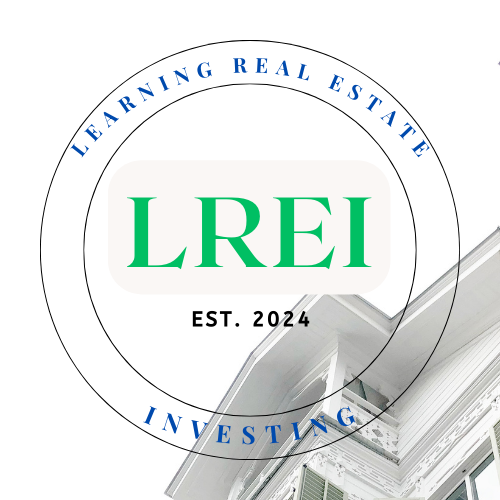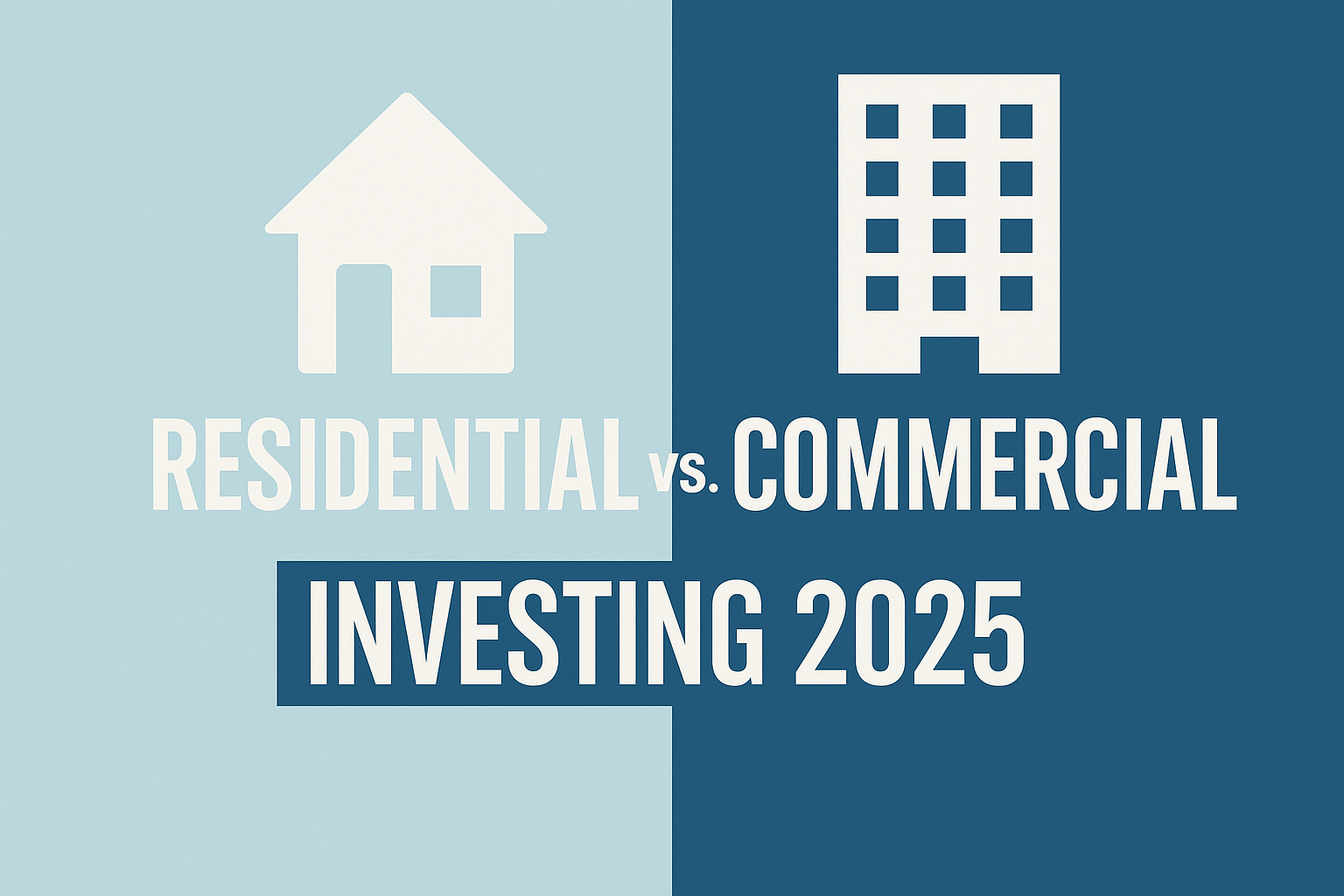Residential vs. Commercial Real Estate: Which Is Better for Investors?
Both offer opportunities—but the right choice depends on your goals, resources, and appetite for risk.
One of the first decisions real estate investors face is whether to focus on residential property or dive into commercial property. Each path has unique advantages, drawbacks, and financial dynamics. The “better” option depends on whether you prioritize stability, cash flow, appreciation, or long-term scalability. Let’s break down both sides in detail.
Want a complete breakdown of residential vs. commercial strategies?
Pros of Residential Investing
Residential real estate refers to single-family homes, duplexes, triplexes, fourplexes, and small multifamily (under 5 units). It’s where most investors start.
- Lower barrier to entry: Purchase prices are smaller, and you can often get started with FHA or conventional loans.
- Consistent rental demand: People always need housing. Even in recessions, demand for rentals tends to hold steady.
- Easier financing: Banks view residential properties as less risky and offer favorable loan terms compared to commercial deals.
- Scalability for beginners: You can buy one property at a time and build equity gradually.
Example: A $250,000 duplex in the Midwest might generate $2,200 in monthly rent. With low vacancy and steady demand, it’s predictable and beginner-friendly.
Pros of Commercial Investing
Commercial real estate includes office buildings, retail centers, warehouses, and multifamily properties with 5+ units. These deals require more capital but can deliver far greater returns.
- Higher income potential: Commercial properties often produce stronger cash flow due to multiple tenants or large-scale leases.
- Longer leases: Commercial tenants often sign 3–10 year leases, providing predictable income streams.
- Triple-net leases (NNN): In many cases, tenants cover property taxes, insurance, and maintenance—reducing landlord responsibilities.
- Professional relationships: Tenants are often businesses that care for the property to protect their brand image.
Example: A 20-unit apartment complex may generate $25,000 in monthly rent, offering economies of scale that single-family homes can’t match.
Risks and Challenges to Consider
No investment is risk-free. Here’s what to keep in mind:
Residential Risks
- Appreciation is slower in some markets.
- Tenants may be less reliable, leading to occasional turnover or damage.
- Cash flow margins can be thin, especially if you buy at the top of the market.
Commercial Risks
- Vacancies hit harder—one empty anchor tenant can devastate cash flow.
- Economic downturns reduce demand for office and retail spaces.
- Lending standards are stricter, often requiring larger down payments (20–30%).
- Management can be complex, requiring experienced property managers.
For a deeper look at risk management strategies, check out the free guide at LearningRealEstateInvesting.com.
ROI and Profitability Factors
Comparing residential and commercial real estate isn’t just about rent checks—it’s about the bigger financial picture:
- Cap Rates: Commercial deals are often evaluated using capitalization rates, giving a clearer snapshot of return compared to residential comps.
- Financing Terms: Residential loans are easier to obtain, but commercial loans can unlock bigger leverage for experienced investors.
- Tax Benefits: Both offer depreciation, but commercial properties often provide larger deductions due to scale.
- Exit Strategies: Residential can be sold quickly to retail buyers. Commercial properties may take longer to sell but often trade at higher valuations.
Which Is Better for Beginners?
For most new investors, residential is the logical starting point. It allows you to gain experience, build equity, and learn property management basics. Once comfortable, many investors move into small multifamily and then into larger commercial deals.
Combining Both Strategies
The smartest investors don’t choose one or the other—they build diversified portfolios. A mix of residential and commercial balances the stability of housing with the upside of larger-scale projects.
For example, an investor might own three duplexes for steady rental cash flow while holding a small office building leased to local businesses. This hybrid model provides flexibility across market cycles.
Conclusion
Neither residential nor commercial real estate is objectively “better.” Each has strengths and weaknesses, and the right fit depends on your goals, resources, and timeline. Many successful investors start with residential, then scale into commercial once they’ve built equity and confidence.
Investor Tip: Start simple. Buy a rental home, master the numbers, and then use that experience to graduate into commercial deals. For a step-by-step strategy guide,


Leave a Reply